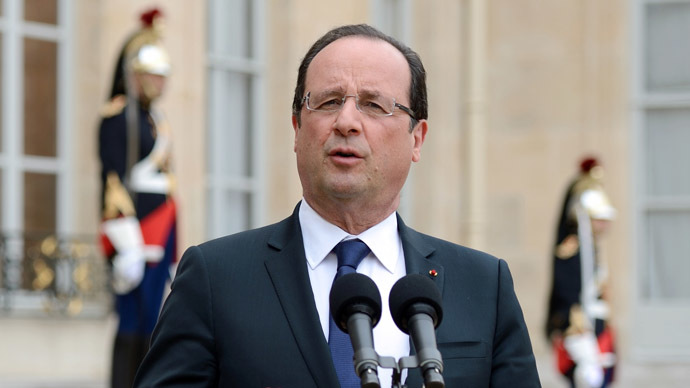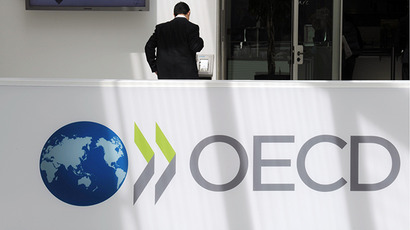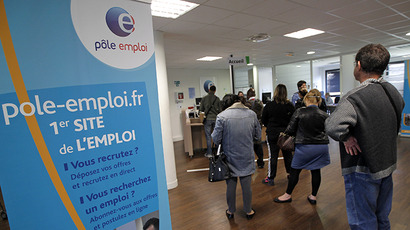Eurozone crisis over – Francois Hollande

The debt crisis Europe has been going through since 2009 is now over according to French President Francois Hollande. He was speaking on the last day of his visit to Japan where his reassurances were aimed at boosting trade between France and Japan.
Talking to Japanese business leaders on Saturday President
Holland said despite crisis in eurozone having eased there’s
still need for measures to boost the region’s economy and
competitiveness. The French President was in Japan to discuss
trade relations between the two countries.
"What you need to understand here in Japan is that the crisis
in Europe is over. And that we can work together, France and
Japan, to open new doors for economic progress," Hollande
said at a meeting organized by Japan's Nikkei newspaper. "We
have used various measures to address weaker nations. Member
nations have tried to restore fiscal health. We have also
established a banking federation. Due to these efforts, yields in
the euro zone have dropped dramatically and we have been able to
restore confidence among investors."
To reassure investors, Hollande claimed that the debt crisis
contributed to “reinforcing” Europe and forced the 17
single currency-using states to deepen cooperation for the good
of the whole of the Eurozone. In his view it’s the crisis that
made European authorities cooperate and work out instruments to
support the region’s economy and the single currency.
"I believe that the crisis, far from weakening the Eurozone,
will strengthen it," he said. "Now, we have all the
instruments of stability and solidarity. There was an improvement
in the economic governance of the Eurozone, we set up a banking
union, we have rules on budgetary matters that allow us to be
better coordinated and have a form of convergence."
Despite the fact that many of the Eurozone’s major weaknesses
have been tackled, the economy in Eurozone is still shrinking and
the manufacturing sector is also in contraction. Unemployment has
soared to its highest level since the euro was introduced in 1999
and reached 12.2 percent.
"We must create a new outlook - an outlook for growth and
employment. Together with Germany, we are trying to establish new
goals beyond fiscal discipline. France and Germany together are
trying to address unemployment, particularly among the youth, in
order to restore Europe's competitiveness… We must ensure that
industries are not only hindered but become part of our long-term
strategy."
In his speech Hollande named Japan an "exceptional
partner" calling for both states to boost investment into
each others’ economies.
President Hollande also spoke of his idea to create a single
common economic government that would be responsible for the
economic policy in the Eurozone.














